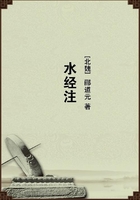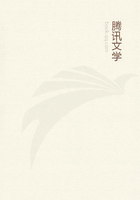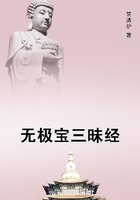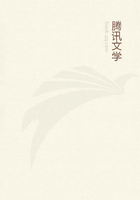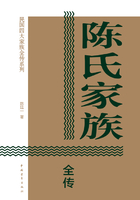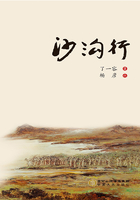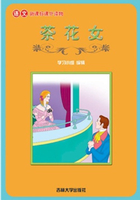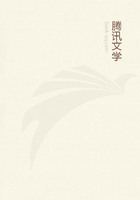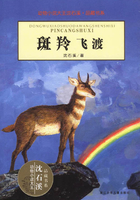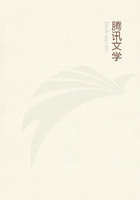"He prayeth well who loveth well Both men and bird and beast;He prayeth best who loveth best All things both great and small:
For the dear God who loveth us, He made and loveth all."
COLERIDGE.
Tom was now quite amphibious. You do not know what that means?
You had better, then, ask the nearest Government pupil-teacher, who may possibly answer you smartly enough, thus -"Amphibious. Adjective, derived from two Greek words, AMPHI, a fish, and BIOS, a beast. An animal supposed by our ignorant ancestors to be compounded of a fish and a beast; which therefore, like the hippopotamus, can't live on the land, and dies in the water."
However that may be, Tom was amphibious: and what is better still, he was clean. For the first time in his life, he felt how comfortable it was to have nothing on him but himself. But he only enjoyed it: he did not know it, or think about it; just as you enjoy life and health, and yet never think about being alive and healthy; and may it be long before you have to think about it!
He did not remember having ever been dirty. Indeed, he did not remember any of his old troubles, being tired, or hungry, or beaten, or sent up dark chimneys. Since that sweet sleep, he had forgotten all about his master, and Harthover Place, and the little white girl, and in a word, all that had happened to him when he lived before; and what was best of all, he had forgotten all the bad words which he had learned from Grimes, and the rude boys with whom he used to play.
That is not strange: for you know, when you came into this world, and became a land-baby, you remembered nothing. So why should he, when he became a water-baby?
Then have you lived before?
My dear child, who can tell? One can only tell that, by remembering something which happened where we lived before; and as we remember nothing, we know nothing about it; and no book, and no man, can ever tell us certainly.
There was a wise man once, a very wise man, and a very good man, who wrote a poem about the feelings which some children have about having lived before; and this is what he said -"Our birth is but a sleep and a forgetting;The soul that rises with us, our life's star, Hath elsewhere had its setting, And cometh from afar:
Not in entire forgetfulness, And not in utter nakedness, But trailing clouds of glory, do we come From God, who is our home."
There, you can know no more than that. But if I was you, I would believe that. For then the great fairy Science, who is likely to be queen of all the fairies for many a year to come, can only do you good, and never do you harm; and instead of fancying with some people, that your body makes your soul, as if a steam-engine could make its own coke; or, with some people, that your soul has nothing to do with your body, but is only stuck into it like a pin into a pincushion, to fall out with the first shake; - you will believe the one true, orthodox, inductive, rational, deductive, philosophical, seductive, logical, productive, irrefragable, salutary, nominalistic, comfortable, realistic, and on-all-accounts-to-be-received doctrine of this wonderful fairy tale; which is, that your soul makes your body, just as a snail makes his shell. For the rest, it is enough for us to be sure that whether or not we lived before, we shall live again; though not, I hope, as poor little heathen Tom did. For he went downward into the water: but we, I hope, shall go upward to a very different place.
But Tom was very happy in the water. He had been sadly overworked in the land-world; and so now, to make up for that, he had nothing but holidays in the water-world for a long, long time to come. He had nothing to do now but enjoy himself, and look at all the pretty things which are to be seen in the cool clear water-world, where the sun is never too hot, and the frost is never too cold.
And what did he live on? Water-cresses, perhaps; or perhaps water- gruel, and water-milk; too many land-babies do so likewise. But we do not know what one-tenth of the water-things eat; so we are not answerable for the water-babies.
Sometimes he went along the smooth gravel water-ways, looking at the crickets which ran in and out among the stones, as rabbits do on land; or he climbed over the ledges of rock, and saw the sand- pipes hanging in thousands, with every one of them a pretty little head and legs peeping out; or he went into a still corner, and watched the caddises eating dead sticks as greedily as you would eat plum-pudding, and building their houses with silk and glue.
Very fanciful ladies they were; none of them would keep to the same materials for a day. One would begin with some pebbles; then she would stick on a piece of green wood; then she found a shell, and stuck it on too; and the poor shell was alive, and did not like at all being taken to build houses with: but the caddis did not let him have any voice in the matter, being rude and selfish, as vain people are apt to be; then she stuck on a piece of rotten wood, then a very smart pink stone, and so on, till she was patched all over like an Irishman's coat. Then she found a long straw, five times as long as herself, and said, "Hurrah! my sister has a tail, and I'll have one too;" and she stuck it on her back, and marched about with it quite proud, though it was very inconvenient indeed.
And, at that, tails became all the fashion among the caddis-baits in that pool, as they were at the end of the Long Pond last May, and they all toddled about with long straws sticking out behind, getting between each other's legs, and tumbling over each other, and looking so ridiculous, that Tom laughed at them till he cried, as we did. But they were quite right, you know; for people must always follow the fashion, even if it be spoon-bonnets.
Then sometimes he came to a deep still reach; and there he saw the water-forests. They would have looked to you only little weeds: but Tom, you must remember, was so little that everything looked a hundred times as big to him as it does to you, just as things do to a minnow, who sees and catches the little water-creatures which you can only see in a microscope.

